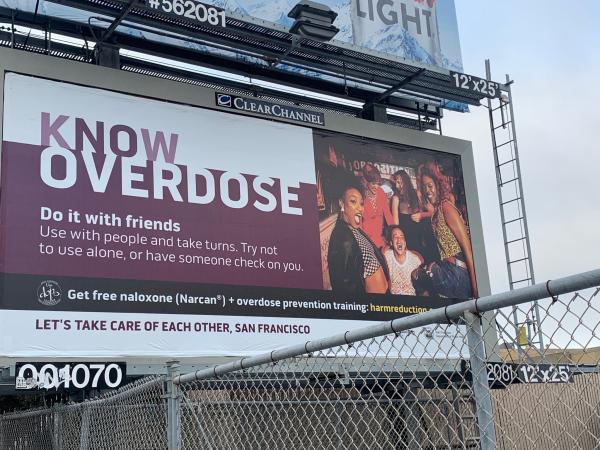
Several months ago, we were about to cover an important story out of San Francisco. However, the coronavirus pandemic hit, and we've been focused almost exclusively on it since then. But now, we're starting to shift back to our regularly scheduled programming.
Back in March, the City of San Francisco paid for a billboard as part of a harm reduction campaign that displays easily the dumbest, most dangerous public health message we've ever seen:

This is jaw-dropping. Rather than encourage people not to use heroin at all, San Francisco is teaching residents to do so in groups because it's less harmful. That's like saying, "If you're going to play Russian roulette, please do so with plenty of medical equipment handy in case we need to put your brains back inside your skull."
In merely a handful of words, the city is providing deadly misinformation. Let's go through them.
Use with people and take turns. Take turns? If you're the last person to inject heroin, that means everybody else is already blitzed out. Who is going to help you now? Also, the poster doesn't mention the importance of not sharing needles, so we can assume that will be happening at these city-approved heroin parties. That's an excellent way to spread HIV, hepatitis, and other nasty infectious diseases.
Get free naloxone. Returning to our Russian roulette analogy, this is akin to saying, "Wear a helmet." Naloxone certainly can save the life of a person who has overdosed on heroin or another opioid, but it doesn't always. One study claims that naloxone, when administered by just an average person, is effective 75% to 100% of the time. That's good, but it also means that roughly 1 in 4 people who overdose on an opioid will die anyway, even if given naloxone.
Let's take care of each other. Uh-huh. The best way to take care of each other is to encourage people never to take these dangerous drugs. Heroin is inherently unsafe because it's impossible to know what stuff bought off the street is adulterated with. It could be anything from fentanyl (which is far more potent and deadlier than heroin) to rat poison. The neighborhood drug dealer isn't always trustworthy.
When does harm reduction make sense?
In general, we are in favor of harm reduction as a public policy when it comes to chronic health problems, such as smoking. Vaping devices and e-cigarettes are a far better choice than tobacco. But harm reduction is a dangerous policy when it comes to drugs that can kill you in a single overdose. Hopefully, that billboard has been pulled down.



